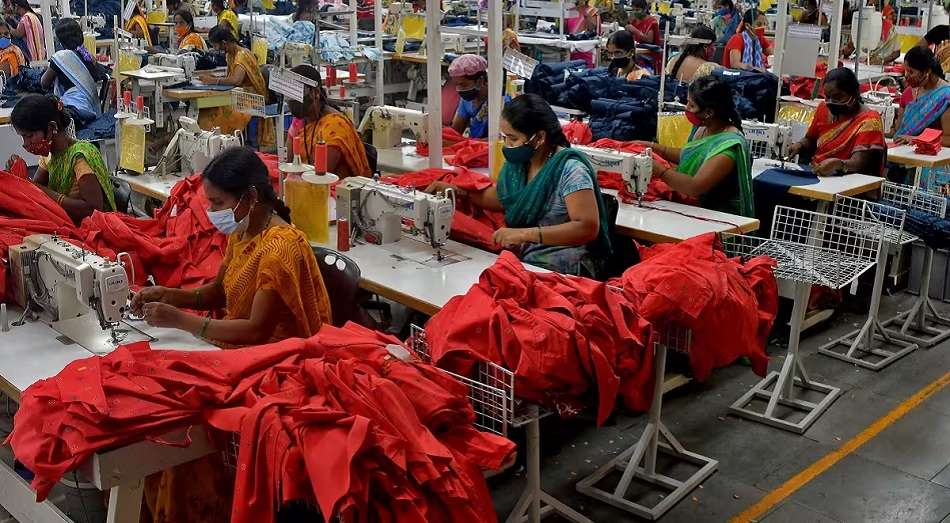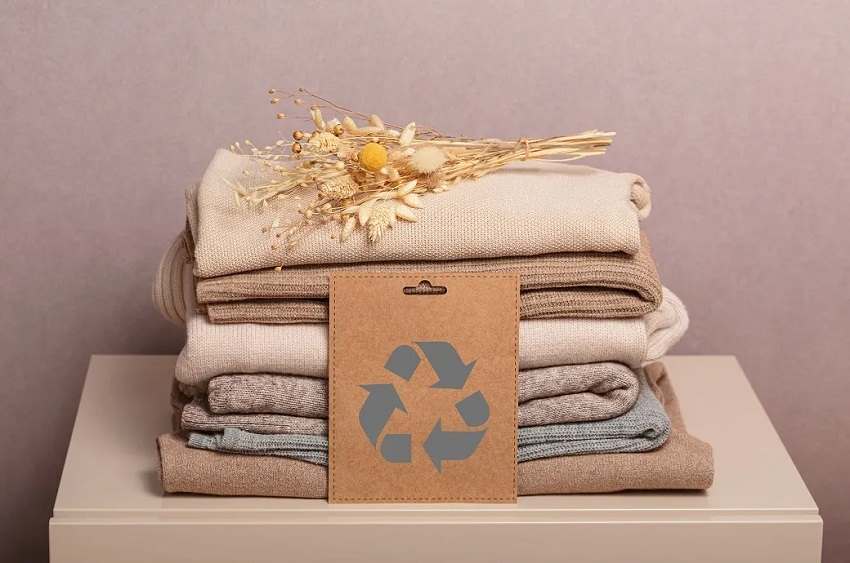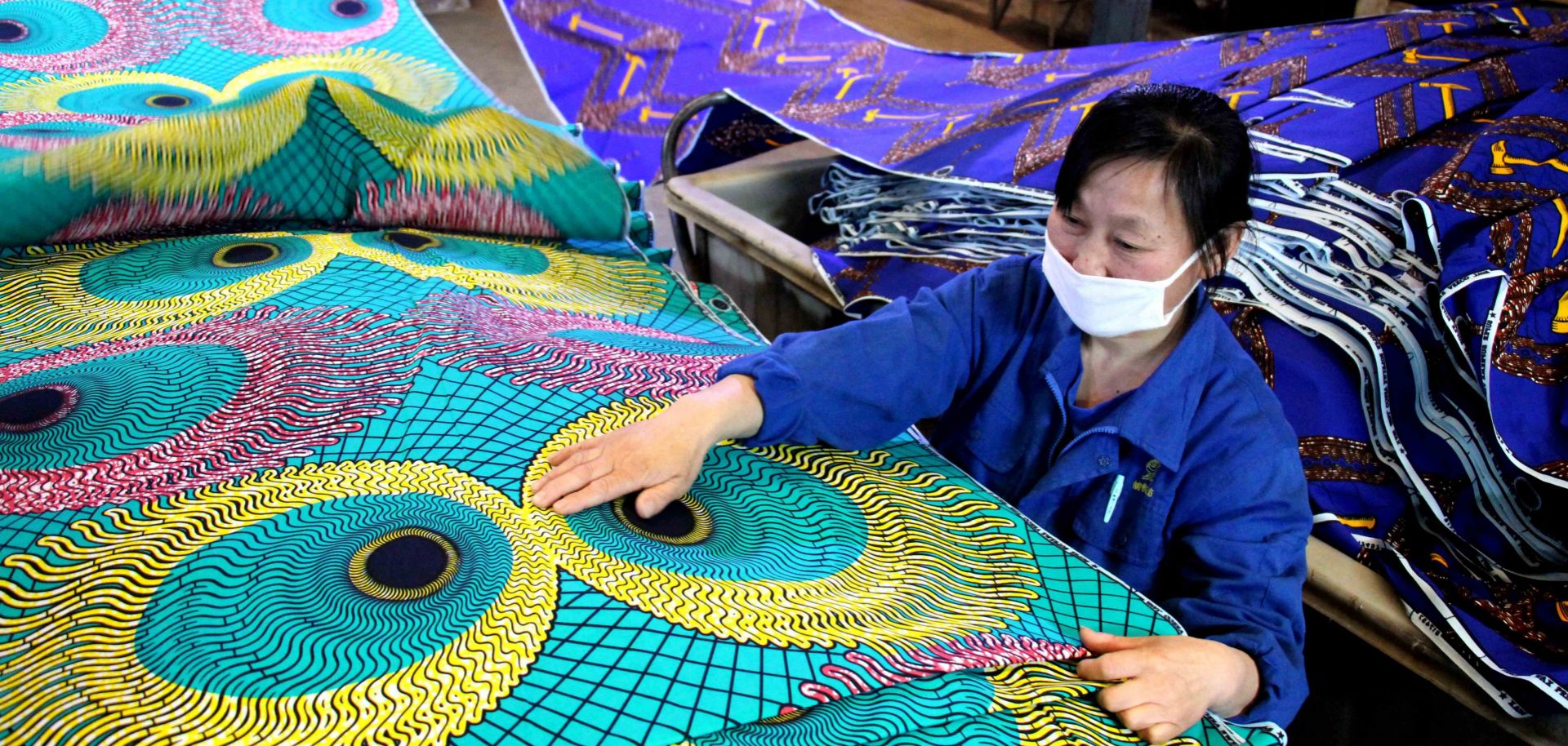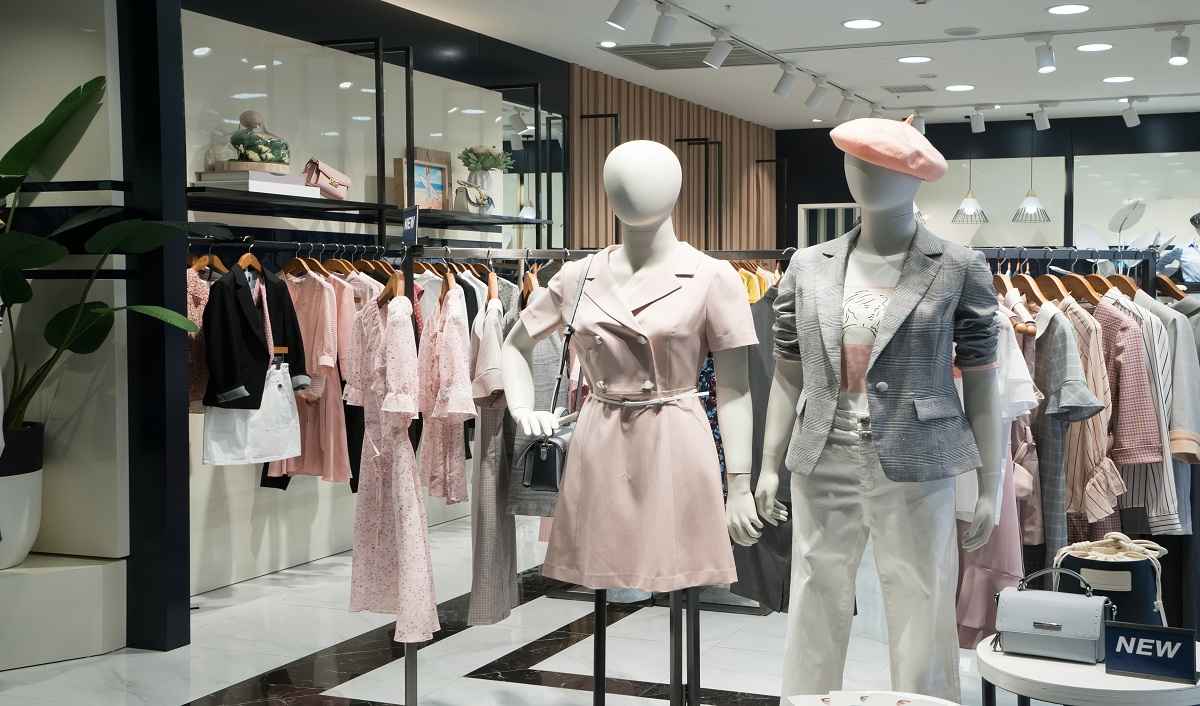FW
A leading machine and plant manufacturer based in Remscheid, OerlikonBarmag notes a growing demand for high quality technical textiles from India There’s a significant rise in inquiries from Indian customers seeking spinning systems for industrial yarns, saysDr Wolfgang Ernst, Head –Sales, Manmade Fibers Solutions Unit, Oerlikon. He notes a particularly strong interest from companies involved in downstream processes, who are now looking to integrate backward into yarn manufacturing. This shift is largely driven by the stricter regulations implemented by the Bureau of Indian Standards, he adds.
Previously, India primarily imported industrial yarns from China. However, with the new government regulations ensuring higher quality standards, it makes strategic sense for Indian textile producers to start manufacturing yarn domestically. OerlikonBarmag’s industrial yarn technology and their flexible spinning concepts support the production of a wide variety of yarn products for different applications. Their portfolio includes processes for producing both polyamide and polyester yarns, designed to meet the specific physical requirements needed for a diverse range of end uses.
As a leading supplier of industrial yarn systems, OerlikonBarmagalso offers customised solutions to its clients. Their system concept for High Tenacity (HT) yarns is particularly valued for its unique properties in the market, ensuring the production of high-quality yarns crucial for products like seat belts.
Increasingly seen as a future growth market in India, the technical textiles sector has been growing at an average rate of 12 per cent since 2013, and now represents about 13 per cent of the entire Indian textile and clothing market, according to the government organisation Invest India. The market volume has nearly doubled in the past decade. Traditionally, India’s industrial yarn production has relied heavily on polyamide—a market in which OerlikonBarmag has established a strong foothold.
The demand for industrial polyester yarns in India is also on the rise, fueled by the construction boom and the increasing use of geotextiles and industrial textiles in various infrastructure projects, as well as in agriculture and aquaculture. This growing demand is further supported by the Indian government’s 2021 industrial development program, which includes technical textiles as one of ten priority sectors, with a goal of reducing the country’s reliance on imports. Historically, India has imported a significant portion of the technical textiles and yarns it requires.
With the changing landscape and growing domestic demand for high-quality technical textiles, Indian producers are now more inclined to develop local manufacturing capabilities, potentially reducing reliance on imports and capturing a larger share of the domestic market.
Yarn mills in Bhilwara, Rajasthan, a key exporter of yarn and denim to Bangladesh, have come to a grinding halt due to the ongoing tensions in the country. The district annually exports goods worth approximately Rs 2,000 crore to Bangladesh, but this trade has now been severely impacted due to the crisis.
The monthly export of yarn and denim from Bhilwara to Bangladesh amounts toRs 150-200 crore.With this trade suddenly coming to a halt, demand for cloth produced in Bhilwara has dropped significantly. Although Bangladeshi buyers haven't cancelled their orders, local producers have ceased production due to uncertainties regarding payments, says RK Jain, General Secretary, Mewar Chamber of Commerce, the largest industrial organisation in Southern Rajasthan.
Home to 450 weaving units, 18 processing plants, 20 spinning mills, and 10 denim industries, Bhilwara collectively employs over 65,000 people directly and around 150,000 workers indirectly. The current crisis poses a serious threat to the livelihoods of these workers, as production has stopped and demand has plummeted.
One of the largest globally, Bangladesh's textile industry exports textiles to various countries, including Europe and the US. Amid the crisis, some entrepreneurs believe that if India can capture even 10 percent of Bangladesh's textile orders, it could provide a significant boost to its own textile sector.
Experts warn that if the crisis in Bangladesh continues, India may need to explore alternative markets for its exports. While the immediate impact on Bhilwara's textile units is severe, there is potential for long-term gains if India can seize this opportunity and make inroads into the markets typically served by Bangladesh.
Leading Japanese clothing brand, United Arrows registered a 10.4 per cent Y-o-Y rise in sales to ¥35.495 billion (approximately $240.7 million) during Q1, FY25.
The company's operating profit increased by 10.6 per cent Y-o-Y to ¥2.768 billionduringthe quarter from ¥2.502 billion in Q1 FY24. Ordinary profit also grew by 8.4 per centY-o-Y to ¥2.999 billion compared to ¥2.766 billion in the same quarter of the previous year.
Despite these gains, the company’s net income declined slightly by 2.0 percent Y-o-Y to ¥1.763 billion from ¥1.798 billion in Q1 FY24. United Arrow’s net income per share for the quarter rose to 63.90, compared to ¥63.48 in the same period last year.
United Arrows is a prominent Japanese fashion retailer known for its high-quality, stylish apparel and accessories. Established in 1989, the company has grown to become a significant player in the fashion industry, with a strong presence both in Japan and internationally.
A garment manufacturer based in Kenya’s Export Processing Zone, Royal Apparel EPZ (RAL), plans to expand its operations by constructing a new factory with a $15 million (Sh1.94 billion) loan from the International Finance Corporation (IFC).
The IFC loan will support the acquisition of new equipment and the establishment of additional sewing lines, significantly enhancing RAL’s production capacity. Additionally, the funds will be used to construct a three-kilowatt-hour (kWh) rooftop solar power plant to reduce the company's energy costs, and a textile wastewater effluent treatment plant with a capacity of 230 cubic meters per day.Pending approval by the IFC board, the loan will be complemented by $5 million (Sh645 million) in equity provided by RAL to expand its operations.
The expanded facility is expected to create 3,700 new formal manufacturing jobs, alongside numerous indirect employment opportunities. The project would primarily benefit people from underserved, low-income communities with limited education and skills, many of whom have no formal employment history. Beyond job creation, the facility will also focus on improving employees’ technical and soft skills through various training programs.
Founded in 2021 and fully owned by Kenyan businessman OmprakashShukla, who has 32 years of experience in the textiles and apparel sector, RAL produces woven pants, knit tops, high-end hospital scrubs, and undergarments for global apparel brands such as Dickies, Michael Kors, The Children’s Place, and Walmart. RAL is part of the RAL Group, which includes its sister companies, Royal Garment Industries EPZ and Royal Clothing EPZ, and operates four facilities within the EPZ.
According to the IFC, the new factory will improve the group's productivity and competitiveness in the apparel industry through optimisation of sewing line staffing, automation of specific tasks, and the integration of real-time data analytics.
Swiss textile machinery leader Benninger has introduced its advanced FabricMaster soft flow machine to the Indian market, following successful installations across Europe, the USA, Peru, Central America, and Bangladesh. Manufactured at Benninger’s High Tech Fabrication facility in Pune, the FabricMaster is set to transform India's textile industry.
Amarnath Dyeing And Bleaching Works Private Limited was the first Indian company to install the FabricMaster, and after a year of outstanding performance, they have decided to invest in a second unit, which is now ready for delivery from Pune. Director SudarshanChandak emphasized that this decision reflects the company's dedication to excellence and sustainable practices. The machine has played a significant role in improving efficiency, reducing waste, and minimizing environmental impact, further solidifying their commitment to these values.
The FabricMaster excels in dyeing challenging Lycra blends of Cotton, Rayon, Nylon, and Modal fabrics without rope marks or edge curling, ensuring optimal dye penetration and color consistency. Its advanced features, such as a precisely adjustable nozzle, an automated chemical dosing system, and an efficient internal fabric plaiter, cater to varying fabric weights and types.
Designed with sustainability in mind, the FabricMaster minimizes water, steam, chemical, and dyestuff consumption. Its optimized chamber design achieves the lowest liquor ratio among water-driven dyeing machines, reducing waste and environmental impact. Additionally, a self-cleaning lint filter, high-capacity heat exchanger, and efficient fabric unloading system enhance productivity and reduce cycle times.
As Benninger'sFabricMaster gains traction in India, it sets new industry standards for efficiency, quality, and sustainability in textile dyeing.
SpinnovaPlc has partnered with Valmet in an exclusive agreement for the supply of process equipment to Spinnova’s technology customers. The exclusivity is limited and includes a fee based on project deliveries. Spinnova doesn’t anticipate a significant impact on its 2024 financials.
Valmet, which previously supplied drying technology to Woodspin—a joint venture between Spinnova and Suzano—will continue collaborating with Spinnova to enhance fibre production technology. The focus is on reducing both capital and operational costs.
Spinnova’s CEO, TuomasOijala, emphasized the strategic importance of this partnership, citing Valmet’s global expertise in process technologies as crucial for meeting Spinnova’s technological and cost-competitiveness goals. The collaboration aims to equip technology customers with the best tools to produce innovative fibres, while also opening doors to potential customers in material processing and pulping.
Petri Rasinmaki, President of Valmet’s Paper Business Line, highlighted Valmet’s commitment to supporting sustainable practices in the textile industry, expressing excitement about expanding their role in this sector through the ongoing collaboration with Spinnova.
Taiwan’s textile industry showcased its expertise in sportswear and sustainable fabrics at the 2024 Paris Summer Olympics, according to the Ministry of Economic Affairs (MOEA). The industry introduced uniforms designed by Justin Chou. These uniforms were infused with cultural elements from various local artists and designers.
According to MOEA, the suit and polo shirt fabrics were supplied by New Wide Enterprise Co, based in New Taipei City, in collaboration with Taipei-headquartered Far Eastern New Century Co. These fabrics were produced using an innovative technology that captures carbon dioxide emissions from recycling factories, transforming the gas into low-carbon, eco-friendly polyester fibers. The resulting fabrics boast properties such as UV resistance, moisture absorption, and quick-drying capabilities.
Another notable fabric included in the uniforms contained a metalloid element embedded in the yarn, which releases negative ions to promote microcirculation and reduce athlete fatigue. The MOEA also highlighted the green and sustainable emblems and armbands provided by the Taiwan-based Junmay Label Textile Co, and the shoes designed by Justin Chou in partnership with the Taichung City-based Footwear and Recreation Technology Research Institute.
Additionally, Taiwanese textile manufacturers contributed functional fabrics for the Olympic teams of Canada, France, Tuvalu, and the United States.
The MOEA continues to support the low-carbon and smart transformation of the textile and footwear industries, having assisted 532 enterprises to date. The ministry remains committed to enhancing cross-border cooperation and advancing competitive sustainable products globally, all while working toward Taiwan’s goal of achieving net-zero emissions by 2050.
From September 11 to 14, the CAITME 2023 trade fair in Tashkent, Uzbekistan, will feature a strong presence of VDMA member companies. Around 25 VDMA members will participate, with 13 of them exhibiting within the official German Pavilion, organized by the German Federal Ministry for Economic Affairs and Climate Action.
These companies, including Bruckner Textile Technologies, Groz-Beckert, Karl Mayer Stoll, and Oerlikon Textile, will present cutting-edge technologies, focusing on sustainability and digitisation in textile production.
In 2023, Germany exported textile machinery and accessories worth €85 million to Uzbekistan, making it the second-largest supplier to the Uzbek textile sector after China. Uzbekistan, a leading cotton producer, has a fully integrated production chain, with significant investments in expanding fabric making, finishing, and dyeing capacities.
Harald Weber, Managing Director of the VDMA Textile Machinery Association, emphasized the importance of technological advancement, stating that CAITME offers a prime opportunity to strengthen collaboration with Uzbekistan’s textile industry.
Largest American-made clothing brand, American Giant has teamed up with the world's biggest retailer Walmart to introduce high-quality, American-made t-shirts in 1,700 Walmart stores across the US.This collaboration was launched with a 100 per cent American-made t-shirt, priced affordably at $12.98. According to Bayard Winthrop, Founder and CEO, American Giant this initiative demonstrates the competitiveness of top-tier American-made goods and inspires other brands to follow suit.
Andrea Albright, Executive Vice President-Sourcing, Walmart notes, the partnership aligns with the e-commerce company’s ongoing commitment to US manufacturing, a pledge made in 2021 to source $350 billion worth of products made, grown, or assembled in the U.S. by 2031.
The collaboration was sparked when Walmart sought to enhance its textile initiatives, leading to the idea of creating a branded line of American-made products specifically for Walmart customers. While Walmart often sources products from overseas, this partnership with American Giant aims to prove that even large retailers can successfully offer American-made goods.
Despite the challenges of higher costs and fragmented supply chains in domestic manufacturing, Winthrop believes that long-term volume commitments from partners like Walmart can help justify investments in automation and training. He also emphasises on the need for bipartisan support for reindustrialisation, urging political leaders and corporations to take steps toward revitalising U.S. manufacturing.
Founded in 2011, American Giant has been dedicated to bringing large-scale, high-quality clothing manufacturing back to the US. The company aimsto reindustrialise America, create middle-class jobs, and ensure rising wages, reinforcing belief in the potential of the American worker. This partnership with Walmart provides American Giant with the scale needed to make a substantial impact on both American workers and consumers.
For the first time this year, Vietnam's export earnings from the textile and apparel sector (T&A)increased by 12.4 per cent Y-o-Y to $4.29 billion in July 2024, achieving the highest figure since August 2022.
As per the figures from the General Statistics Office (GSO), over the first seven months of the year, Vietnam’s export earnings from the sectorincreased by 5.9 per cent Y-o-Yto $23.9 billion.
During this period, exports of fiber and yarn rose by 3.5 per cent Y-o-Yto $2.53 billion, while fabric exports rose by 18 per centto $458 million.
During the same timeframe, Vietnam expenditure on textile and garment imports rose by 11.4 per cent Y-o-Yto $878 million.
Last year, Vietnam's garment and textile exports had declined by 10 per cent to $39.5 billion. However, this year, the sector has set an ambitious target by increasing its export earnings by 10 per cent Y-o-Y to $44 billion.
During a trade promotion conference in July, Truong Van Cam, Vice Chairman, Vietnam Textile and Apparel Association (VITAS), encouraged local firms to seize every opportunity, make accurate forecasts, and stay informed about market conditions to achieve the$44 billion export target for this year.












